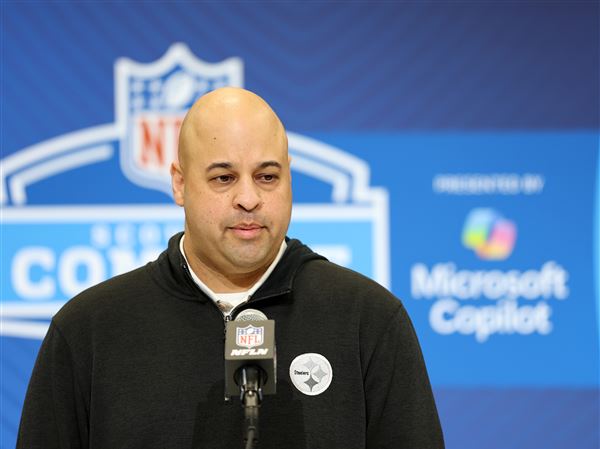A downshift in the IRS's tax collections based on whistleblower tips, confirmed in a report issued late Thursday, spurred calls Friday for new legislation to put some of the taxman's powers into private hands.
The IRS during its 2013 fiscal year paid 122 whistleblower awards totaling $53 million, it reported. That's down from 128 awards for $125 million in 2012.
The agency converted just six tips into collections of $2 million or more, it revealed -- down from 12 multimillion-dollar tips in 2012.
The IRS has long explained the slow flow of whistleblower payments -- which were made mandatory by Congress in 2006 -- by arguing that it can't pay until it collects, and complex tax cases often take five to seven years to resolve. Even now, though, after the seventh year of mandatory whistleblower payments, the agency isn't predicting any upswing.
Big whistleblower payments are "not projected to grow dramatically" this fiscal year, according to the report.
The report had advocates for whistleblowers demanding new legislation.
"The numbers [of tips] coming in are not surprising. The numbers [of payments] coming out are shockingly low," said Stephen Kohn, executive director of the National Whistleblower Center, a nonprofit based in Washington, D.C.
Telling for dollar$
He said that it's time to allow whistleblowers to sue accused tax cheats on their own, just as individuals can already sue when they detect fraud by government contractors. "If [the IRS] can't do it on their own, you need legislation to force it," Mr. Kohn said.
Business groups responded that individually filed lawsuits accusing others of cheating Uncle Sam would be disastrous.
"Anyone with a political ax to grind could use the full force of the IRS" to settle scores, said Matt Webb, senior vice president at the U.S. Chamber of Commerce Institute for Legal Reform. "It's a horrible, horrible idea."
Momentum lost
The IRS has been permitted, since the 1860s, to pay whistleblowers for information after it leads to a tax recovery, but in 2006 Congress decided it wasn't doing so often enough. Since in 2007, if someone brings information to the IRS that leads to a recovery of $2 million or more in previously unpaid taxes, the agency has to pay the tipster 15 to 30 percent of the amount collected.
The program burst into the news in 2012 with a $104 million payment to Bradley Birkenfeld. He went to federal prison for three years for helping people dodge taxes while working for the Swiss bank UBS, but then became very wealthy for telling the IRS how it was done.
Any sense of momentum created by that high-profile award, though, dissipated with Thursday's report. Though more claims and more potential multimillion-dollar tips came in last year than in 2012, fewer whistleblowers collected and they got fewer dollars.
"The paltry amount of payouts compared with the amount of tax fraud going on is, in and of itself, startling," said Ralph Minto, a Downtown Pittsburgh tax attorney who has brought around 10 whistleblowing clients to the IRS, but has yet to see even one get an award.
The 36-person IRS Whistleblower Office noted in its report the agency's March decision to trim all whistleblower awards by 8.7 percent due to the overall federal belt-tightening known as sequestration. That cost whistleblowers $464,706, according to the report.
The IRS opted Friday not to comment on the report.
The downturn in payments didn't hearten the Chamber of Commerce, which has opposed the program on the grounds that it could discourage employees from using their employers' internal reporting systems when they perceive a tax problem.
"I don't think that it was an order of magnitude drop that we're seeing," said Mr. Webb. "I think that the program is still problematic."
The numbers concerned the Senate's most ardent advocate for whistleblower programs.
"My worry is that the slow progress will cause the tips to dry up," wrote U.S. Sen. Charles Grassley, R-Iowa, who spearheaded the 2006 legislation mandating payments, in an email to the Post-Gazette. "That would harm the whistleblowers who stick their necks out to flag tax cheating and the honest taxpayers who pay what they owe and deserve tax fairness."
Let them sue?
Sen. Grassley compared the recoveries through the IRS program unfavorably with those under another whistleblower law, the False Claims Act. That act allows individuals to sue anyone believed to be defrauding the federal government, and gives the Department of Justice the option to join the lawsuit, or just allow it to go forward privately.
When a False Claims Act lawsuit results in a settlement or verdict, the government gets the bulk of the proceeds, but the whistleblower gets a share. In 2013, the government recovered nearly $3 billion through false claims act lawsuits -- roughly eight times what the IRS whistleblower program brought in. False Claims Act whistleblowers got $388 million last year, or seven times what IRS tipsters received.
"If the IRS does not start working together with whistleblowers, and start paying out rewards, the law must be fixed," said Mr. Kohn. "The IRS whistleblower law should be amended to mirror the False Claims Act, and permit whistleblowers to be more involved in the enforcement actions."
Mr. Webb countered: Do we really want employees, ex-employees or even interest groups taking tax allegations directly to court?
"It's a frightening concept when you have groups that have political disagreements with -- pick a company or a nonprofit," Mr. Webb said. "By virtue of filing [a lawsuit] they [would be] basically able to start the discovery process in litigation. ... And you may not have done anything wrong at all."
Mr. Minto, most of whose tax practice does not involve whistleblowers, said he thought private lawsuits alleging tax cheating "would be a nightmare." Litigation is usually a public process, he said, while taxes are intensely private.
Under the current system, though, whistleblower-based cases are backing up, with some dying on the vine.
"The report also indicates that in fiscal year 2013 alone, the IRS closed more than 250 whistleblower claims because there were insufficient resources to investigate or the statute of limitations was close to running out," wrote attorney Erika Kelton, of the whistleblower law firm Phillips & Cohen, in an email to the Post-Gazette. The IRS's dearth of investigators and statute of limitations pressures, she said, should be treated by the agency as "good reasons to work more closely with whistleblowers -- not to close cases."
The IRS report indicated that as of a month ago, its Whistleblower Office was tracking 11,531 potential claims for allegedly overdue taxes. Just three of those claims were at the stage at which the IRS evaluates whether to pay an award.
"They've opened up a door, but aren't able to process it, and they're just stacking up, and that is a terrible waste of resources," said Mr. Kohn. "It's essentially a radical disservice to the whistleblowers, many of whom come in at the risk of their careers, and to the intent of Congress."
First Published: April 6, 2014, 3:51 a.m.
















